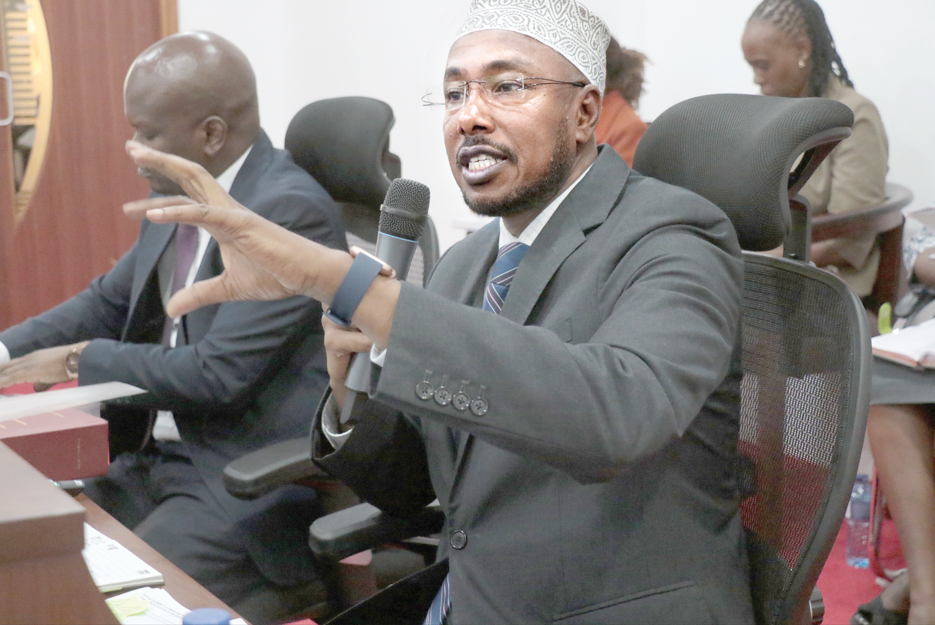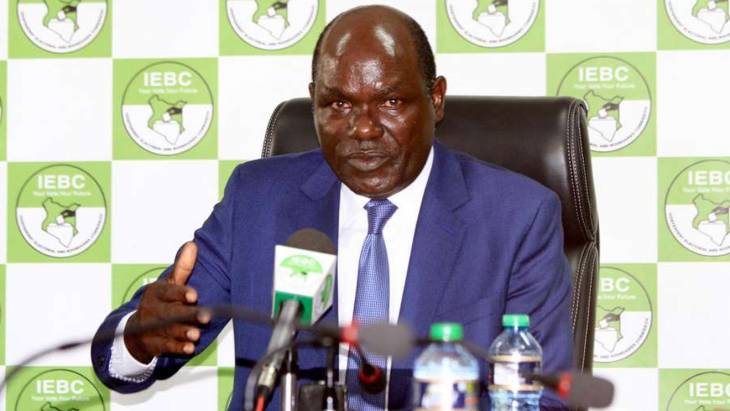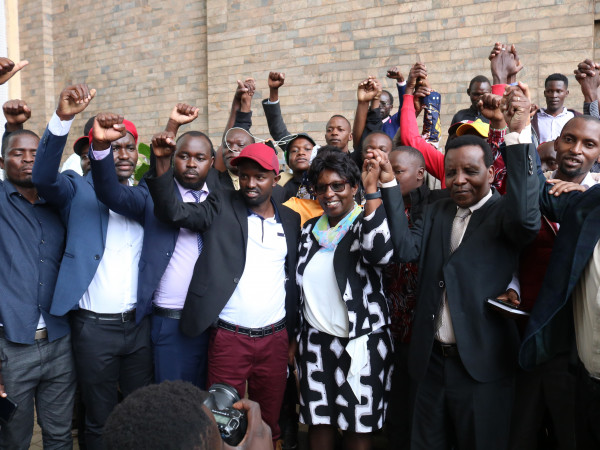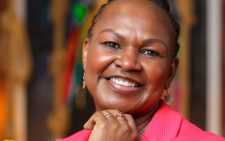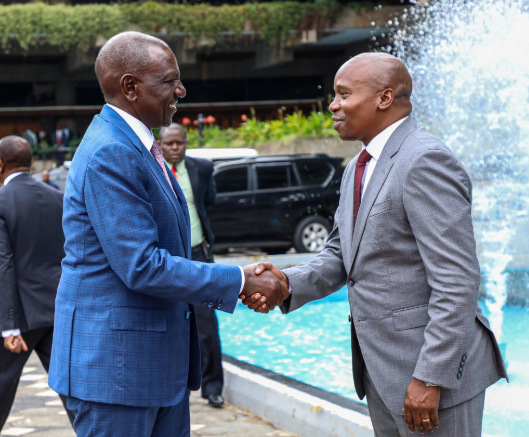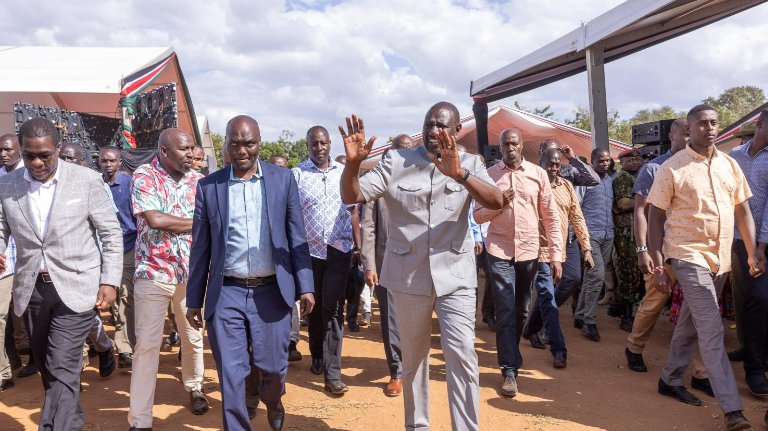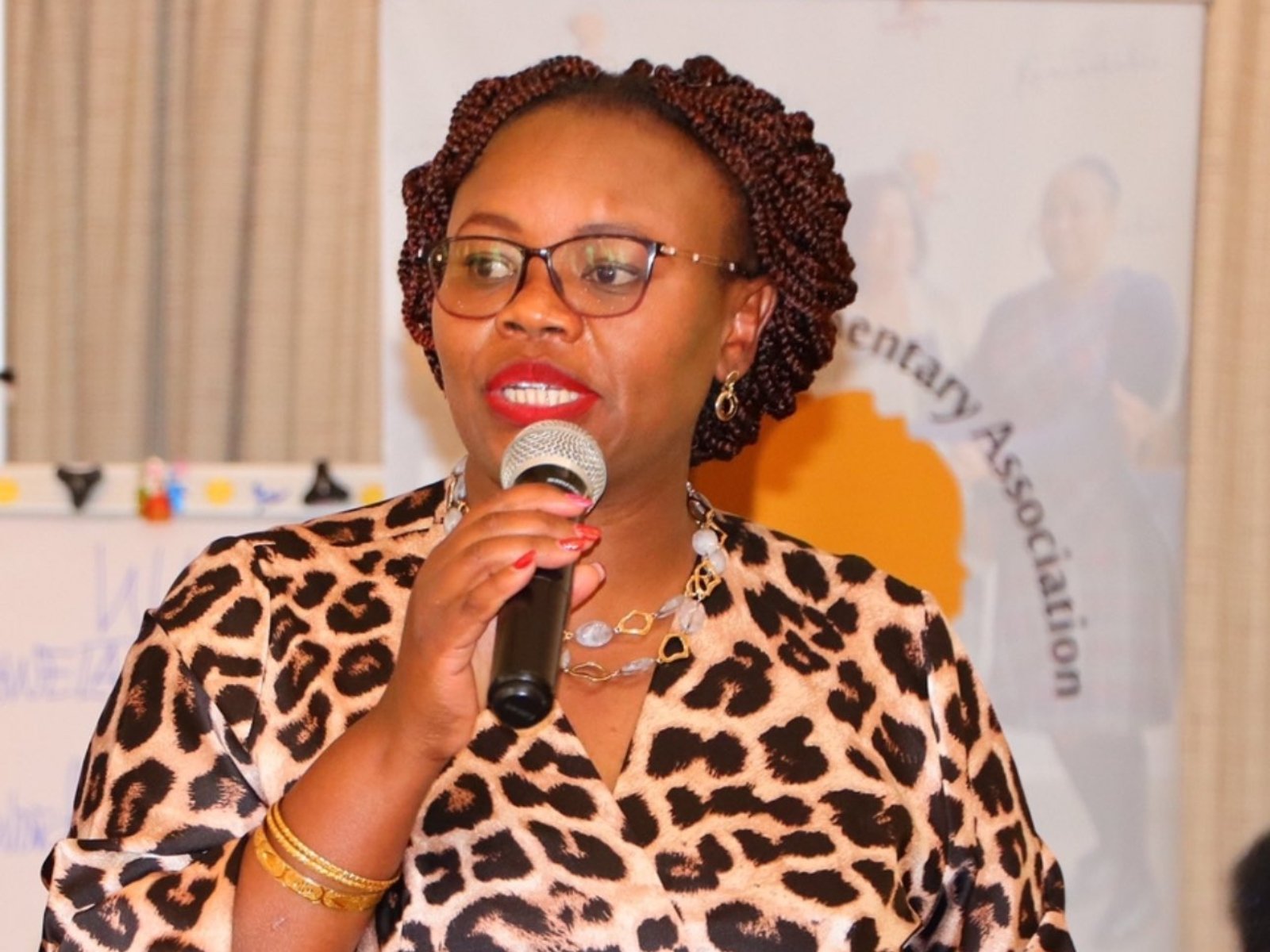Donate in harambees and face music, aspirants told

by Jeremiah Kiplang’at and Clement Kamau
Political aspirants, who participate in Harambees personally or through proxies, will, starting today midnight, be deemed to have committed an electoral offence and will be locked out of next year’s elections.
Independent Electoral and Boundaries Commission (IEBC) chairman Wafula Chebukati yesterday said the electoral body would enforce the law strictly, adding that the Elections Act was clear on fundraisers aimed at influencing voters to cast their ballots in a particular way.
“Aspirants cannot participate in fundraising either by themselves or proxies within eight months to the election being on December 9, 2021. The prohibition includes participation either by attendance or contributions.
The import being to curb aspirants from influencing voters by donating funds/money for support,” he said during a meeting with the National Council of Churches of Kenya yesterday.
Sway voters
It will mark a difficult time for politicians who are used to dishing out millions of shillings in an attempt to sway voters to their side. Billions of shillings exchange hands during the electioneering period, most through events disguised as fundraisers for noble causes.
The law was enacted to stop this habit, with the electoral agency hoping it would help achieve fair elections.
Chebukati, however, said aspirants could still organise or participate in fundraisers for their own campaigns without attracting the wrath of the commission.
Fundraising for campaigns is guided by the Election Campaign Financing Act, which sets out a strict mechanism for holding such efforts.
Electoral body had earlier warned candidates against posting any campaign materials before the approved time. Chebukati said the commission will be on the lookout for those who would breach the law on this.
“It follows that any ongoing campaign drives including the erection of campaign posters is tantamount to a breach of the Elections Act and as such an electoral offence punishable under the Election Offences Act, 2016,” he added.
More Kenyans living abroad would get a chance to register this time round as the polls agency plans to expand its reach in the diaspora. “In 2017, the commission registered eligible Kenyans living in the diaspora as voters in South Africa, Uganda, Tanzania, Rwanda and Burundi. For the 2022 General Election, the commission plans to include the diaspora voter registration exercise in the United Kingdom, Canada, United States, South Sudan, Qatar, the United Arab Emirates and Germany,” Chebukati said.
IEBC has asked the Communication Authority to ensure that 11, 155 polling stations that did not have 3G coverage are properly connected before the polls to enable easier sharing of voter results.
Unregistered Kenyans will also get another chance to be enrolled as voters for the upcoming election during the final mass registration set to be conducted in January.
Chebukati said the commission will roll out the final registration programme after it failed to meet its target in the last exercise. Commission chairman said IEBC was keen to give qualified Kenyans another chance to be part of the voters’ roll.
He said the commission started the electoral cycle for next year’s polls with the launch of a Continuous Voter Registration in October 2018. From that launch to August 2021, the commission registered a total of 180,938 new voters.
“The commission later rolled out the Enhanced Continuous Voter Registration (ECVR) exercise in all the 1,450 wards on October 4 at a launch held in Nakuru county. By the close of the exercise on November 5 a total of 1,519,294 eligible Kenyans had been enrolled as voters. The commission is currently planning for a second and last round of ECVR in January,” said Chebukati.
In the last exercise, IEBC had targeted netting six million new voters but fell way short of the figure.
Voter apathy, inadequate awareness and lack of funds were blamed for failure to achieve the number.
Last exercise
Chebukati regretted that millions of youths who have attained voting age are yet to be registered as voters and urged them to take advantage of the January 2022 mass voter registration to enlist themselves.
“We have close to 4.5 million youths who have not registered as voters despite having reached 18 years and I urge the church to prevail upon them to register in order to exercise their democratic right of choosing leaders of their choice,” he said.
NCCK General Secretary Chris Kinyanjui urged the electoral body to be fully independent in order to give Kenyans electoral hope and confidence.
“Put your trust in God. The commission has a sacred duty. The world is watching and we are sure the coming polls will be peaceful, credible, free and fair,” said Rev Kinyanjui.
